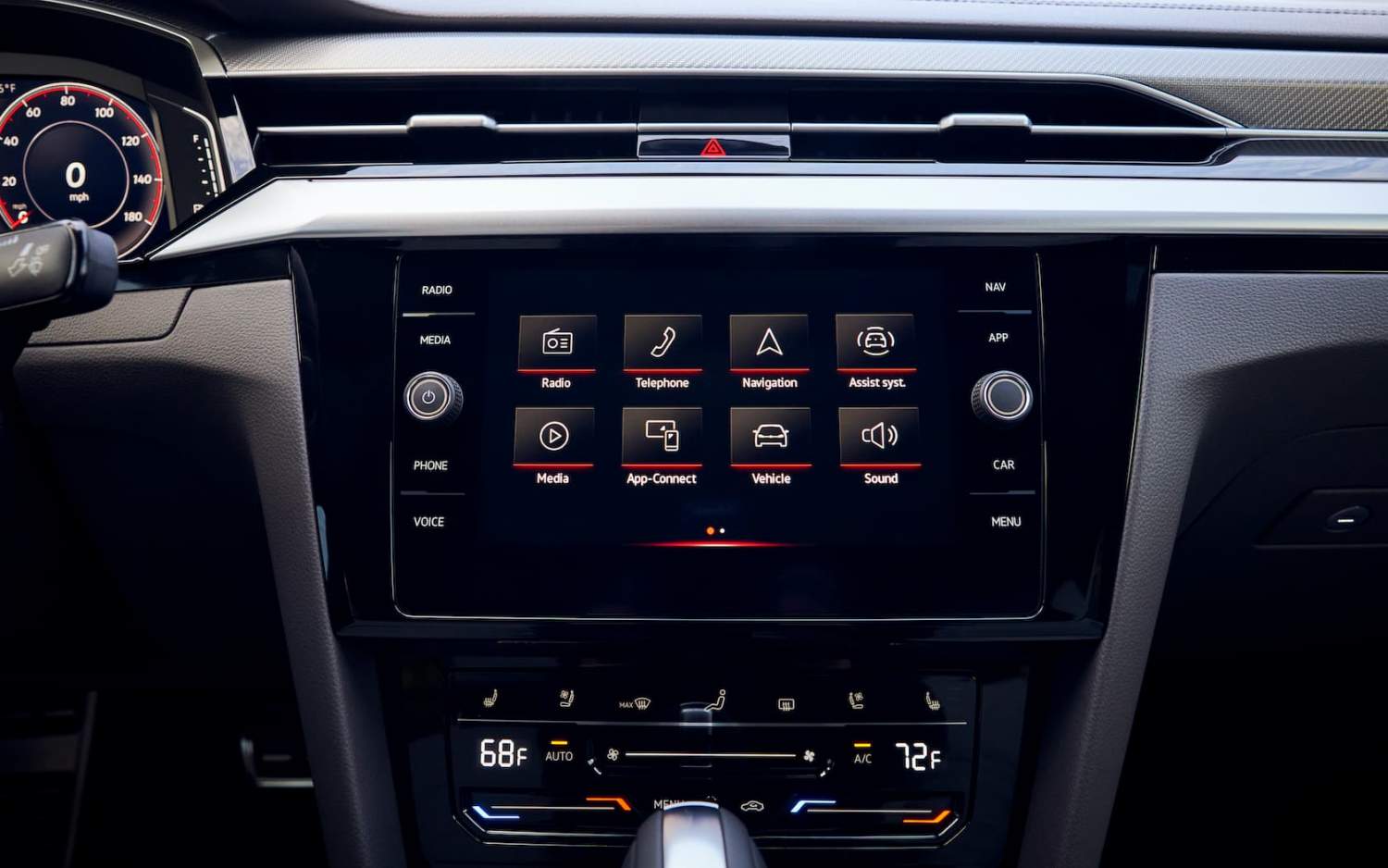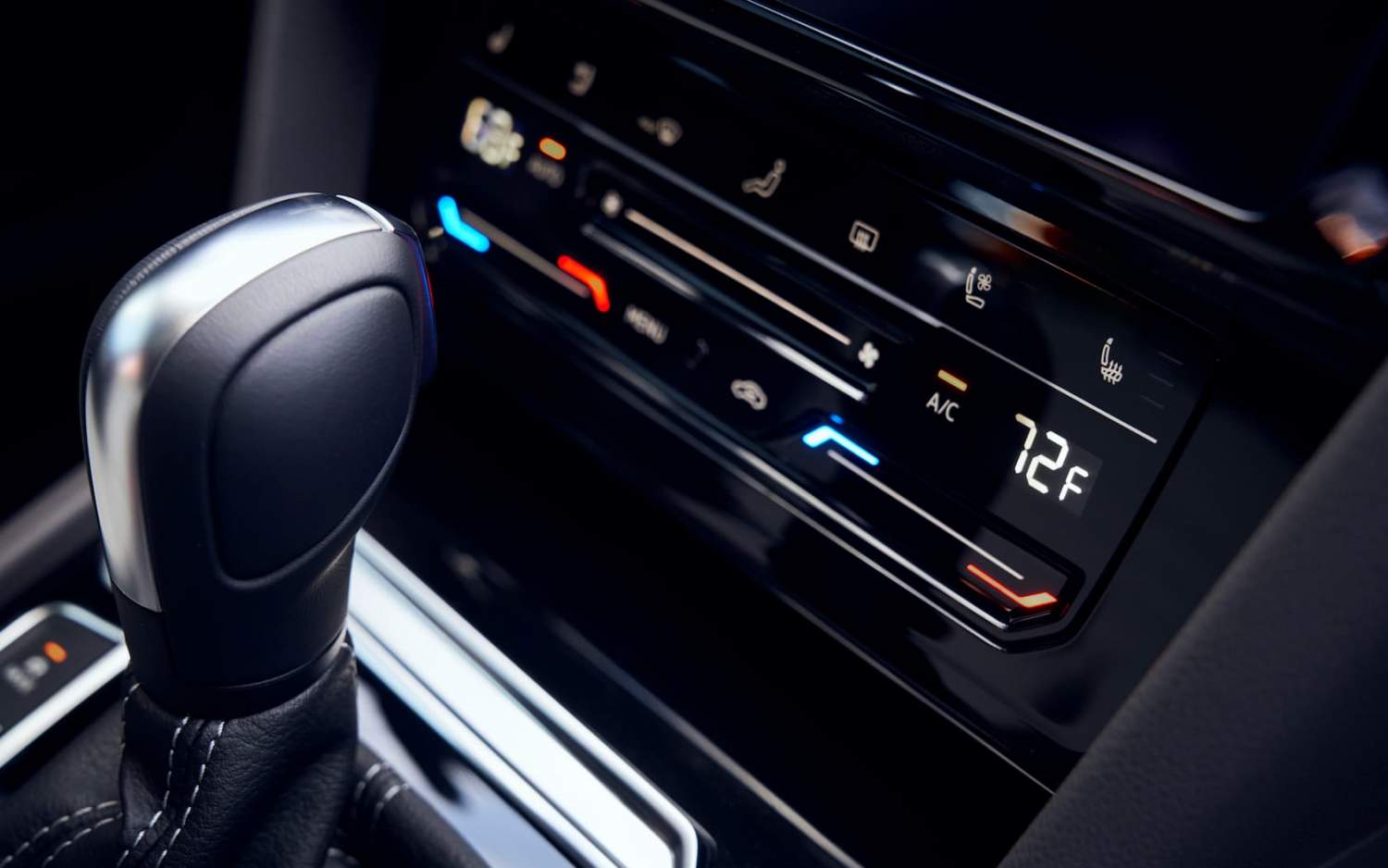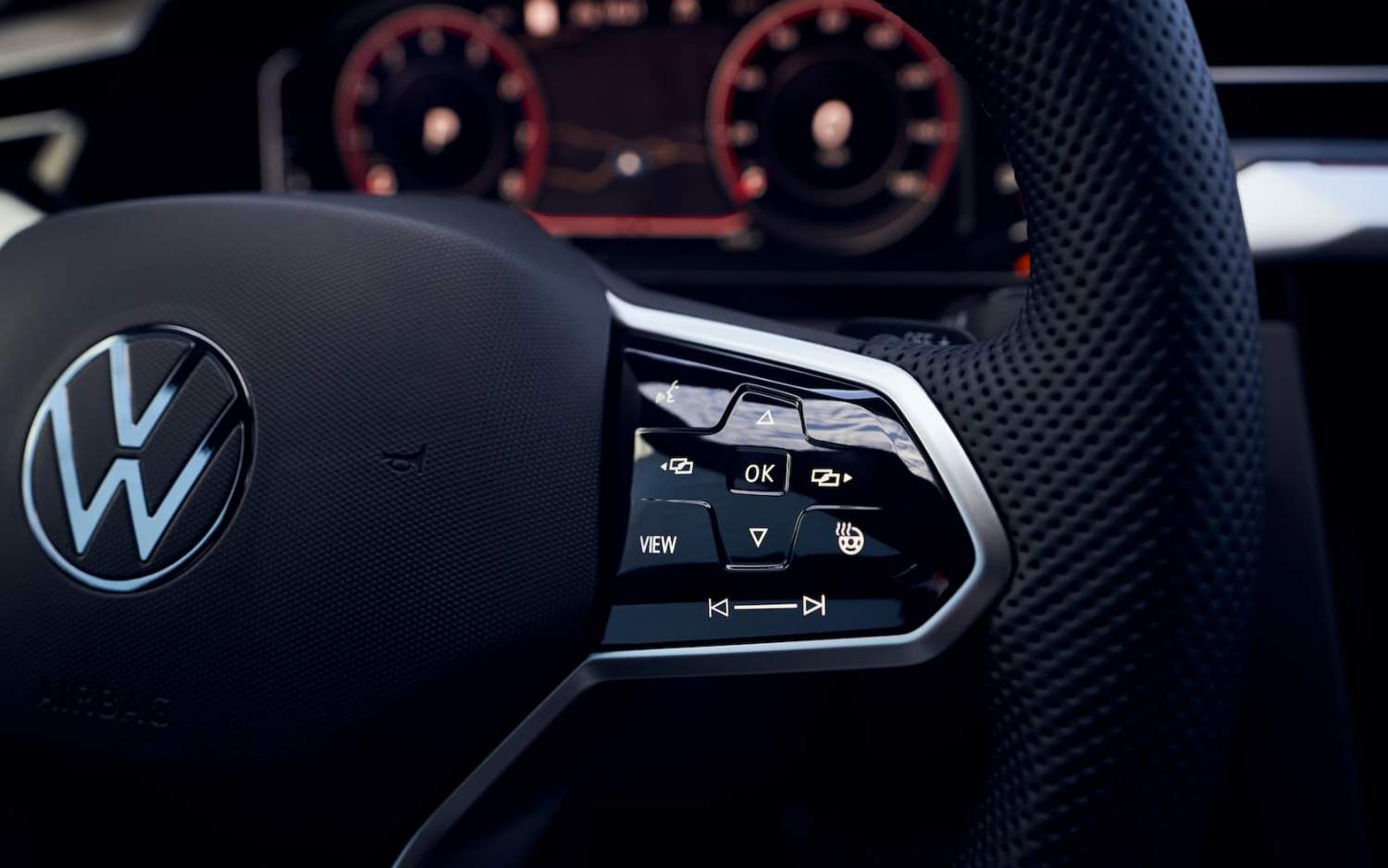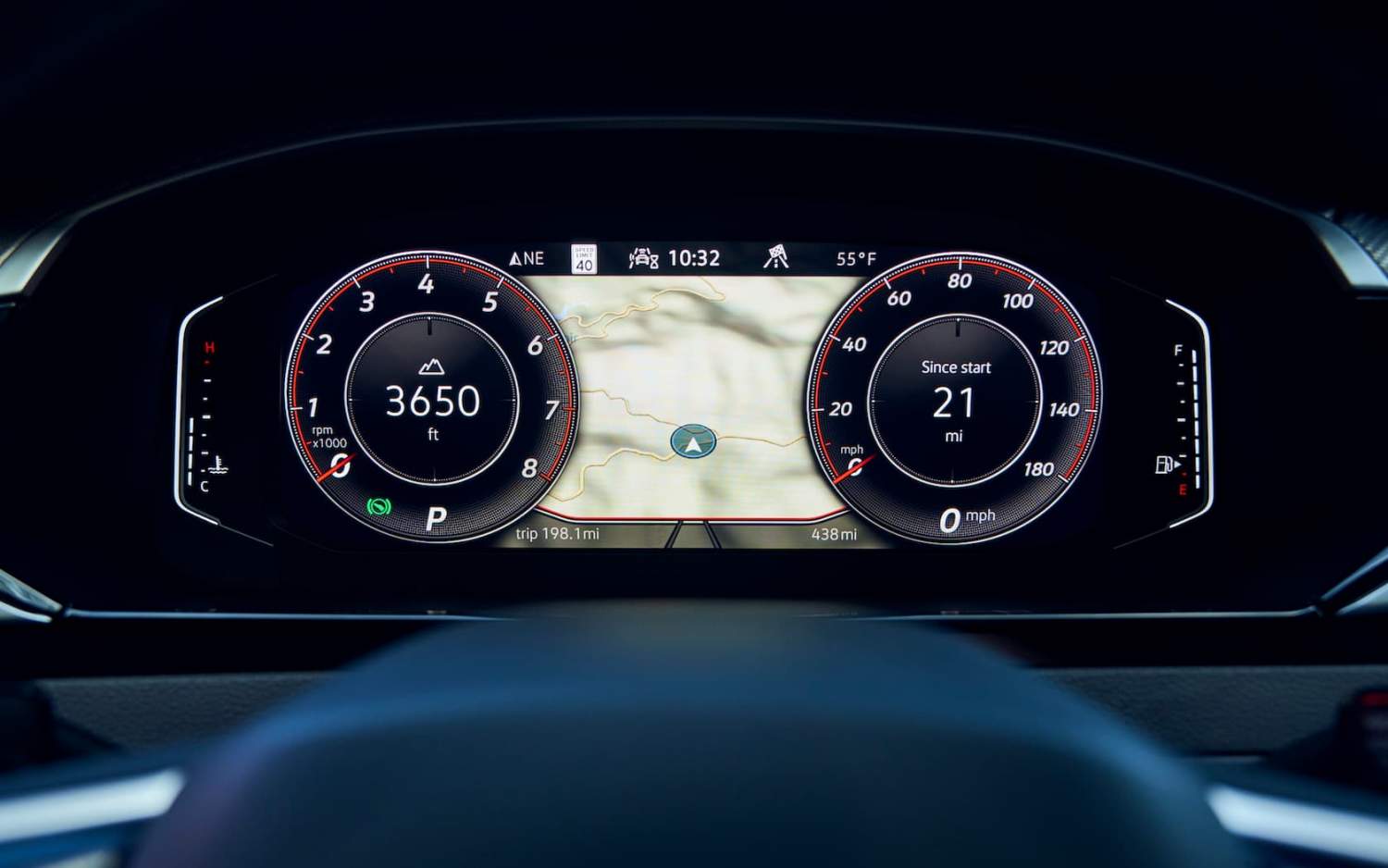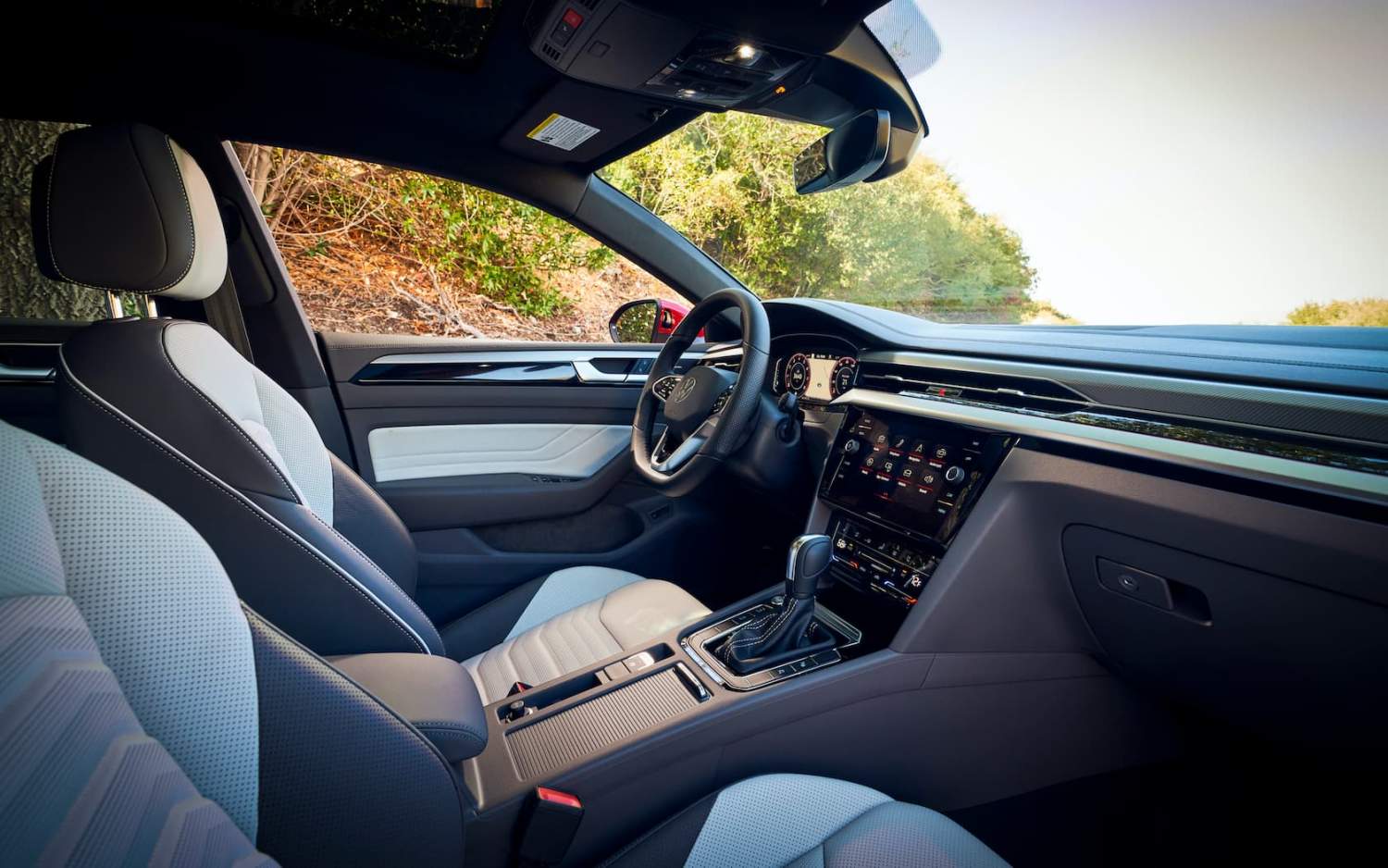2021 Volkswagen Arteon Review - Style With A Side Of Exclusivity
- Stunning exterior design
- Cabin is big and quality has taken a serious step up
- Smooth engine is refined and more economical now
- Decent level of standard tech and safety equipment
- Performance doesn't match the sporting style
- Touchscreen dashboard controls can be finnicky
If it takes something special to stand out in the sedan segment right now, then from across the parking lot at least the 2021 Volkswagen Arteon has a lot going for it. In sharp SEL R-Line form, and with not-quite-black Urano Gray paintwork, VW's four-door coupe may be a fancier hatchback if you want to get down to brass tacks, but seldom do they look quite so sinuous.
It's a marked exception to a VW sedan range which is probably best described as conservative in its design language. Volkswagen may not have vocally given up on four-door passenger cars like some of its rivals, but the Jetta and Passat cling to a sober, eminently mature aesthetic that pairs their affordability with earnest practicality.
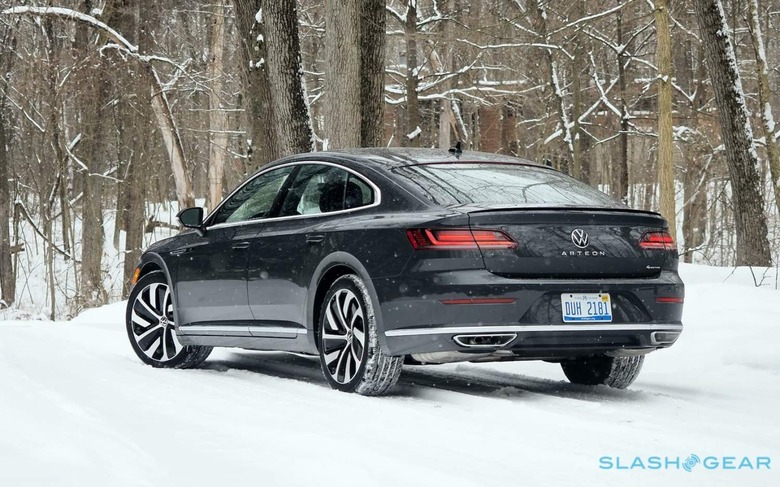
Not so the 2021 Arteon, a mustache-twirling debonaire rogue in comparison, or as much as you can be with a starting price of $36,995 plus destination. By the time you step up to the SEL R-Line trim with 4MOTION all-wheel drive you're at $44,590 (including the $1,195 destination). That's still hardly bank-breaking when you consider you could park it next to an Audi A5 Sportback and – if you masked the badge off first – probably find passers-by torn between the two.
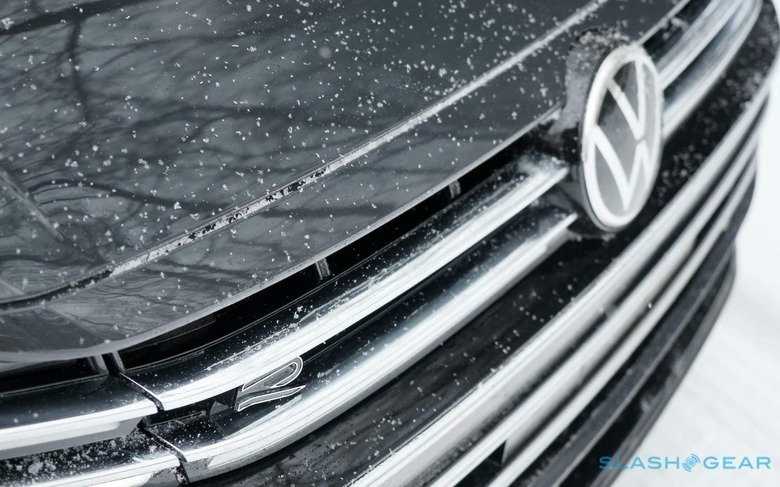
Standard is a 2.0-liter turbo 4-cylinder engine with an 8-speed automatic transmission. 268 horsepower and 258 lb-ft of torque are not figures that will tear the eyebrows from your face with the Arteon's acceleration, but neither do they leave the sedan slow. 0-60 mph comes in the mid-6-seconds, though the gearbox prefers to upshift early and avoid downshifts if at all possible.
That probably helps the improvement in fuel economy – now clocking in at 20 mpg in the city, 31 mpg on the highway, and 24 mpg combined, which seemed straightforward to hit in my testing – but not with any sense of urgency. There are paddle shifters to override things, or you can notch the gearshift back to put the transmission into Sport mode where things get a little more eager, though not by too much.
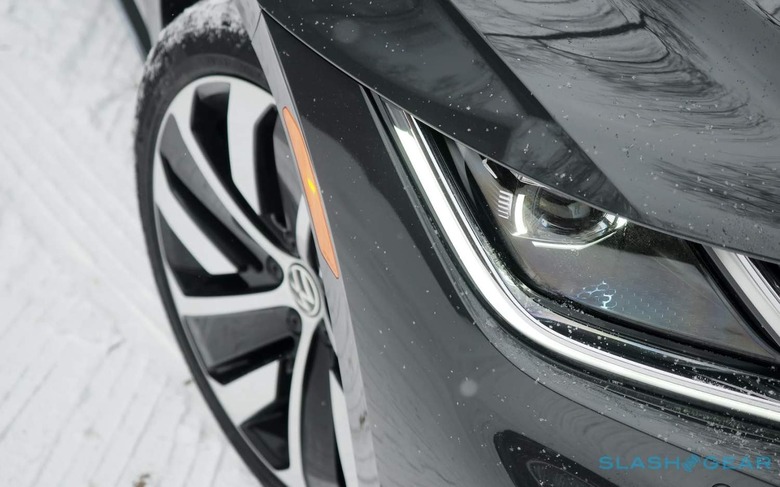
Driven more maturely, however, and the Arteon's charms flow more readily. The combination of AWD, VW's cross differential system, and adaptive chassis control leave the sedan smooth and composed. Out in the Midwest ice, the only things leaving me cautious were the thicker ridges of unplowed snow, where the car's low ride height proves to be the main spoilsport to otherwise excellent winter manners.
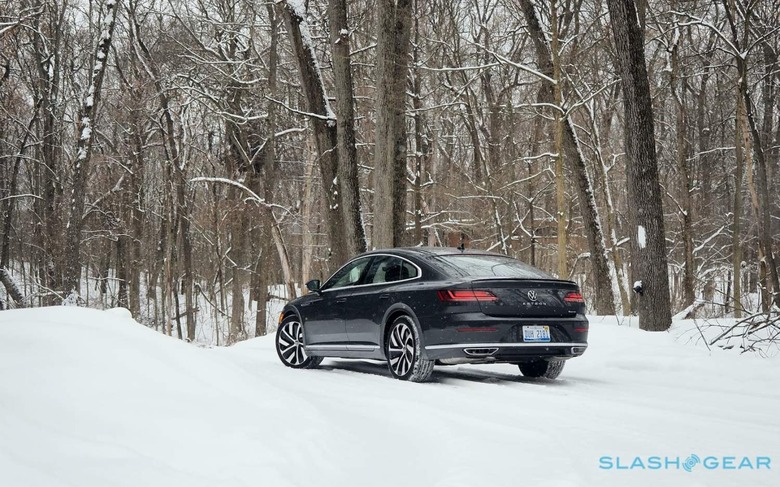
It's predictable, in the best possible way. The steering is nicely weighted, and there's a noticeable transition between suspension compliance in the Comfort setting through to firmer territory when you switch to Sport. You can get bigger, 20-inch wheels, but the 19-inch alloys with all-season rubber on my test car did a solid job of balancing looks while avoiding a lumpen ride.
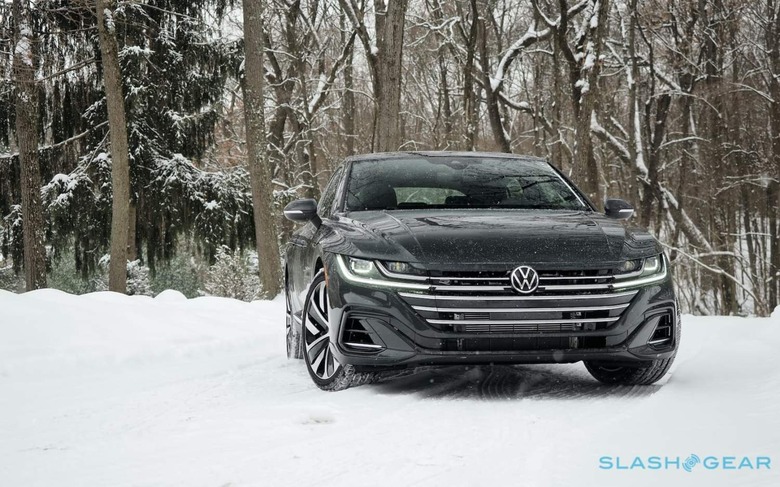
Even base cars get blind spot monitoring and rear traffic assist, forward collision warning and emergency front braking, pedestrian monitoring. The SEL throws in adaptive cruise control, dynamic road sign display, lane assistance, and front and rear parking sensors.
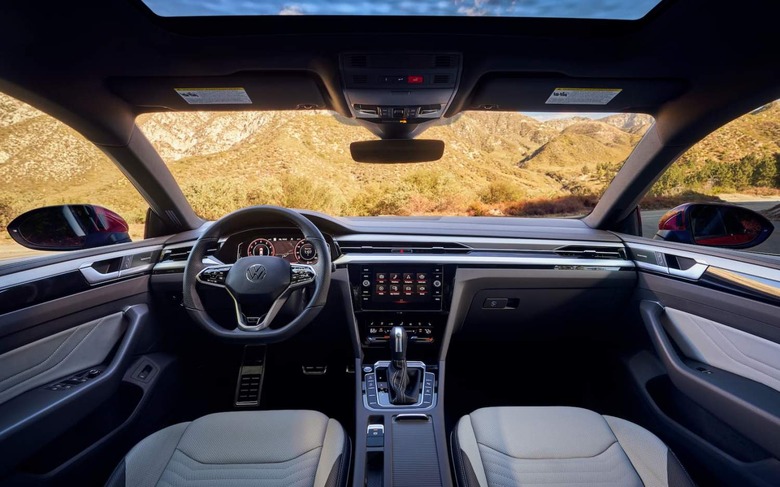
Inside, things are well specified if a little dark. You get leather on the seats and steering wheel, plus tri-zone climate control, heating for the front seats, and an 8-inch touchscreen infotainment system with wireless Android Auto and Apple CarPlay. There's also a wireless charging pad, remote start, and a fully-digital driver display. You'd not be wrong in comparing all that to what Audi offers on that aforementioned A5 Sportback, and noting with alarm just how much more the Arteon's sibling would cost you for it.
My advice would be to skip the Titan Black interior trim, and go for the Florence Brown or Stone and Raven – brown and cream, respectively – finishes instead, which should help lighten things up. Standard across the board are VW's favored touch-sensitive controls, which feature on both the steering wheel and the center console. I'm sure, given more time, I'd develop the muscle memory for just the right amount of pressure-and-swipe required to adjust temperature, volume, adaptive cruise control speed, or whatever else without overshooting, but until then prepare to be frustrated (and constantly wiping away smudges).
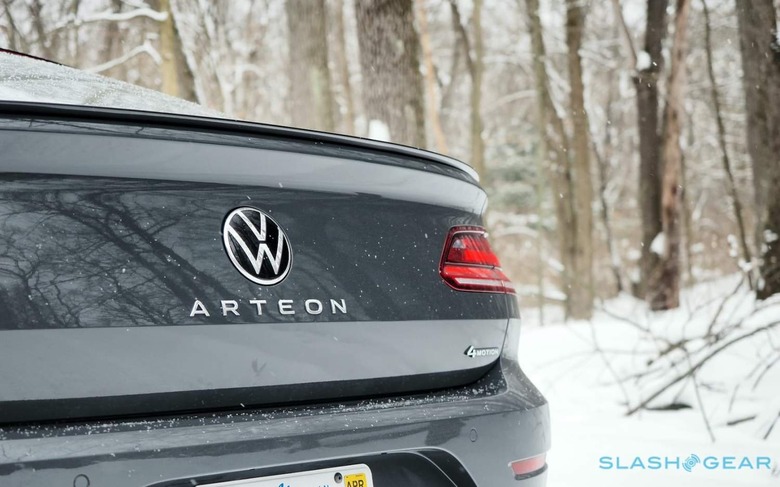
The unexpected boon is in practicality. Usually, these coupe-inspired sedans trade cabin and cargo space for their sleeker roofline, but the Arteon manages to buck that trend. There's 27.2 cu-ft of space in the trunk, and that hatchback makes taking advantage of it far easier than, say, with a Passat. Drop the 60/40 split rear seats, meanwhile, and it expands to a cavernous 56.2 cu-ft. Even rear passenger space can accommodate full-sized adults, just as long as they're more leggy than anything else.
2021 Volkswagen Arteon Verdict
At a time when the best most mainstream automakers can say about the sedan category is that they're well-placed to take advantage of a shrinking audience, the 2021 Arteon is oddly compelling. It's a reminder that VW is not only capable of building high-quality, sleekly designed cars, but that there's still room to impress beyond the status-quo of crossovers and SUVs. Nothing else in Volkswagen's line-up looks as dashing, quite frankly.
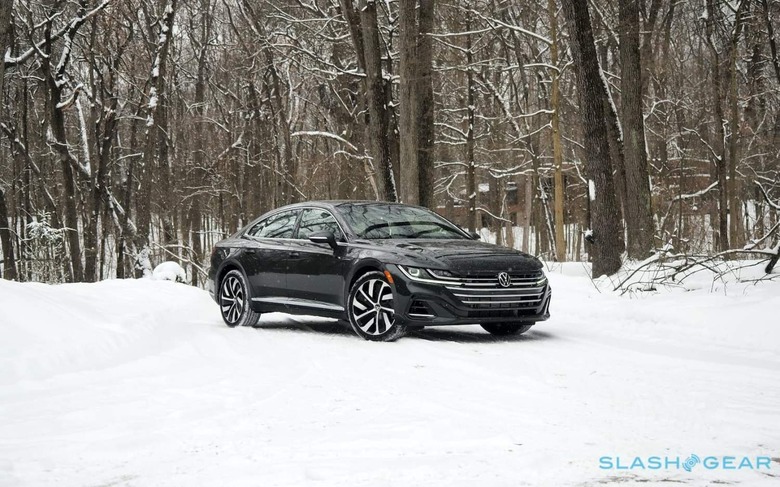
No, there's no electrified option, and no, the performance isn't going to turn you into a stop light drag racer. At least, not one who wins. But the Arteon's composed manners, cosseting and capacious cabin, and handsome curves give it some real personality. I suspect it'll never be a volume seller, but perhaps that only adds the allure of rarity to its list of pros.

